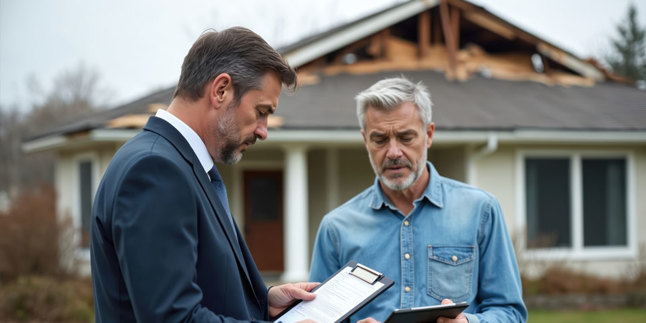Understanding Property Taxes and Homestead Exemption in Louisiana
Navigating the world of property taxes can be intimidating, especially for new homeowners or first-time buyers. In Louisiana, understanding property taxes and the Homestead Exemption is essential for financial planning and ensuring that you’re not paying more than you should. These taxes, which help fund essential local services such as schools, public safety, and infrastructure, can vary from parish to parish. However, there are specific rules and exemptions available that can lower your property tax burden. In this blog, we’ll break down property taxes in Louisiana, the Homestead Exemption, and how you can benefit from these provisions.
What Are Property Taxes?
Property taxes are annual taxes imposed on real estate, including homes, land, and other physical property. In Louisiana, property taxes are based on the assessed value of your property, which is determined by your local tax assessor’s office. These taxes help fund local government services such as police and fire departments, schools, and road maintenance.
Property taxes in Louisiana are calculated based on two main factors:
- Assessed Value of the Property – The local tax assessor determines this value, typically set at 10% of the market value for residential property (or 15% for commercial property).
- Millage Rate – This is the rate at which taxes are levied, expressed as mills (1 mill equals $1 per $1,000 of property value). The millage rate is set by local taxing authorities, and it varies by parish and location.
Once the assessor determines the assessed value of your property, they apply the millage rate to calculate how much property tax you owe.
The Homestead Exemption in Louisiana
The Homestead Exemption is one of the most beneficial provisions available to homeowners in Louisiana. This exemption reduces the taxable value of your home, meaning you pay less in property taxes. The Homestead Exemption applies to the first $75,000 of the value of your primary residence, effectively exempting you from taxes on that portion of the value.
The specifics of the Homestead Exemption are as follows:
- Exemption Amount: The first $75,000 of the market value of your home is exempt from property taxes.
- Eligibility: You must own and occupy the home as your primary residence as of January 1st of the tax year to qualify for the exemption.
- Tax Benefit: The exemption applies only to the primary residence, so it doesn’t apply to second homes, rental properties, or land that isn’t your primary dwelling.
For example, if your home is worth $100,000, you would only pay property taxes on the remaining $25,000 of the assessed value. This results in significant tax savings, which can be a relief for homeowners in Louisiana.
How to Apply for the Homestead Exemption
In Louisiana, you don’t have to apply for the Homestead Exemption every year. Once your application is approved, it will remain in effect unless you move, sell your property, or otherwise lose eligibility. However, new homeowners or those who have recently moved must apply for the exemption by January 1st of the tax year.
To apply, you’ll need to:
- Complete the Homestead Exemption Application – This can be done through your local parish tax assessor’s office.
- Provide Proof of Ownership – Typically, this means providing a copy of your property deed.
- Provide Proof of Primary Residence – In some parishes, you may be asked to provide documents such as a utility bill, driver’s license, or voter registration card that shows the address of your primary residence.
It’s important to apply as early as possible and ensure that all required documentation is provided. Some parishes may require additional paperwork or have slightly different procedures, so it’s always a good idea to check with your local tax assessor’s office for specific details.
Other Louisiana Property Tax Exemptions
In addition to the Homestead Exemption, Louisiana offers other property tax exemptions and credits that may benefit homeowners. These include:
- Additional Homestead Exemption for Veterans: Veterans with a service-related disability rating of 50% or higher may qualify for an additional exemption from property taxes.
- Low-Income Senior Citizen Exemption: Senior citizens with limited income may qualify for additional property tax reductions or exemptions.
- Property Tax Freeze for Seniors: Some parishes offer a property tax freeze for seniors, preventing increases in property taxes based on the assessed value of their homes.
- Tax Abatement Programs for New Construction: Some local governments offer property tax relief for homeowners who build or renovate their homes in certain areas.
Be sure to check with your parish assessor’s office to determine if you qualify for any of these additional exemptions.
Understanding How Property Taxes Are Paid
In Louisiana, property taxes are generally due once a year. The local tax assessor will send out the property tax bill, which will include the assessed value of your property and the amount owed. Property taxes are usually due by December 31st of each year, but this can vary by parish. You can pay your property taxes directly to the local tax collector's office or through their website, depending on their specific process.
Saving with the Homestead Exemption
Understanding property taxes and the Homestead Exemption in Louisiana is crucial for homeowners looking to minimize their tax burden. The Homestead Exemption alone offers valuable savings by reducing the taxable value of your primary residence. By taking advantage of this exemption and staying informed about other available tax credits or exemptions, you can ensure that you’re not overpaying on property taxes.
If you’ve recently moved or are in the process of purchasing a home, be sure to apply for the Homestead Exemption before the January 1st deadline. Don’t forget to check with your local parish tax assessor’s office for any other exemptions you may be eligible for. And remember, staying organized and understanding your property tax obligations will help you avoid unexpected costs and help you plan your finances more effectively.
At American Bank, we’re committed to helping you build a secure financial future, whether you’re navigating homeownership or learning more about property taxes. If you have any questions or need advice, feel free to contact us. We’re here to help.
Tags: Home Ownership
Related Posts

Navigating Home Loans with Your Community Bank

Step-by-Step Guide for First-Time Buyers

Understanding Homeowner’s Insurance

